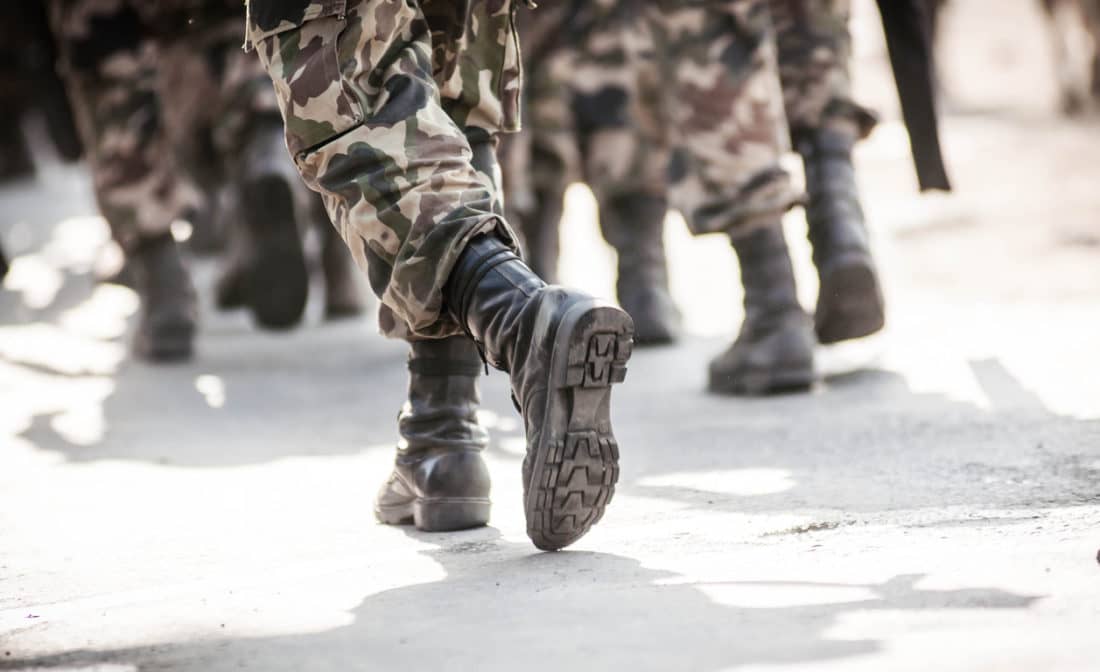Going Back to School as a Military Veteran
Making the transition from life in the military to life as a civilian isn’t easy. But there are many advantages to earning your degree after finishing your military service, such as improving your job opportunities and easing the transition to a civilian lifestyle.
And we know you can do it! Studies show that veterans earn their degrees at a similar rate to non-veterans. Despite the unique challenges faced by veterans, one study showed that those who use the GI Bill earn their degrees in sync with traditional students.
Here’s an overview of the resources available to veterans going back to school, plus some of the potential scams to be aware of and avoid.
Benefits of Earning Your Degree
Transitioning to Civilian Life
Going to school and earning your degree after finishing your military service can have a number of benefits. Some veterans actually find that attending classes, joining study groups, and finding peers can ease the transition into civilian life. Many schools are even finding ways to specifically tailor their programs to veterans.
Former military members may also meet peers at school who were in the military or can understand their experiences. Building a community and having a support network through your peers at school can make it easier to graduate and to transition to civilian life.
Improved Job Opportunities
Earning your degree can also improve job opportunities. The Economic Policy Institute of Washington found that workers with a four-year degree outearned their peers with only a high school degree. Those with a bachelor’s degree earned $31.93 an hour on average, compared to those with a high school degree who earned $17.25 an hour on average. Having a degree can be a game-changer in the current job market. A degree can also make the difference between getting a job that you do and a job that you love.
Training in a New Field
Going back to school also allows you to receive training in a new field of your choice. Many military members join the military at a young age, possibly straight out of high school. Teenagers often aren’t sure yet what they want to do with the rest of their lives. As a veteran, you might want to learn new skills that weren’t as appealing to you as a teenager. College is the time to learn those skills and put them to use in the professional world.
Resources to Help You Go Back to School
Being a veteran, you have access to more excellent resources than ordinary civilians. Here is a small sampling of them:
Post 9/11 GI Bill
The funding from the GI Bill is in place to help veterans receive job training or go back to school after their military service. For approved programs, the GI Bill provides students up to 36 months in education benefits.
Military Funding for College
There’s a multitude of options when it comes to aid for college. There are scholarships, grants, and loans that are designated specifically for veterans going back to school. For more on these, see part III of our financial aid series.
DANTES and DSST
While in the military, most service members receive training in specialty areas. Through the DANTES (Defense Activity for Non-Traditional Education Support) program, military personnel can earn college credits for the training and experience they accrue during their service. The DSST (DANTES Subject Standardized Tests), which are free for veterans, will earn you college credit, putting you a few steps closer to your degree. Less time in school means less tuition! For more see our article on Credit for Life Experience.
Military Subsidies for Child Care
If you have children, you can apply for military subsidies to help pay for childcare. This can help you focus on your studies while reducing your costs.
What to Watch Out For
When looking at programs to go back to school, trust your gut. If something smells fishy, it probably is. There are a lot of scams out there for students returning to school, some even aimed directly at veterans.
For-profit schools aggressively recruit veterans because they can make an easy dollar through the GI Bill. There are grant scams that give students fake checks to deposit and financial aid scams that offer to file your FAFSA (which is free) for a fee and to help you find other aid. Beware of financial aid scams and stick close to the recommendations made by the VA when using your GI Bill funds.
This is just a sample of all the information that there is on financial aid for veterans. Check back with us in the near future as we post more in-depth articles exploring how veterans can use financial aid, successfully graduate with their degree, and where to find scholarships for veterans.
More About Abound: We’re here to help. Abound: Finish College narrows down your options and gets you in touch with schools that we can confirm are Accessible, Affordable, Accelerated, and Advanced. Take a look at the schools we trust and find the program that works for you.
More Helpful Resources:
“Dollar Signs in Uniform”: How For-Profit Schools Scam Veterans
How Can I Tell if a Degree Program is Legitimate or a Scam?
Beating the Confidence Gap and Earning Your Degree
What is Accreditation and Why is it So Important?





